| | Baltimore’s bridge collapse impacts trade, China cracks down on comedians, and a drama upends the bi͏ ͏ ͏ ͏ ͏ ͏ |
The World Today | 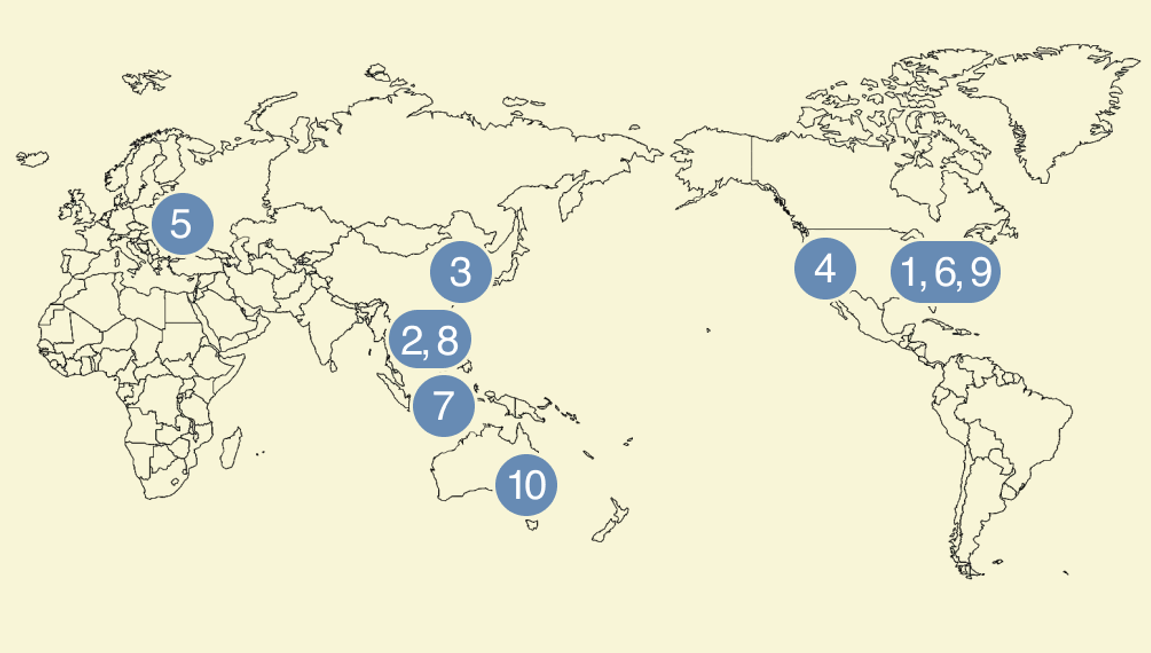 - Bridge collapse disruptions
- Make-or-break year for HK art
- China comedy crackdown
- AI and foreign languages
- Kyiv’s Africa push
- Biden polling comeback
- Borneo’s Indigenous cooking
- Birdwatching drama
- Nuclear real estate
- Drowning rats
 A lesbian romantic drama in Scotland, and the country with the world’s happiest young people. |
|
Bridge collapse impacts global trade |
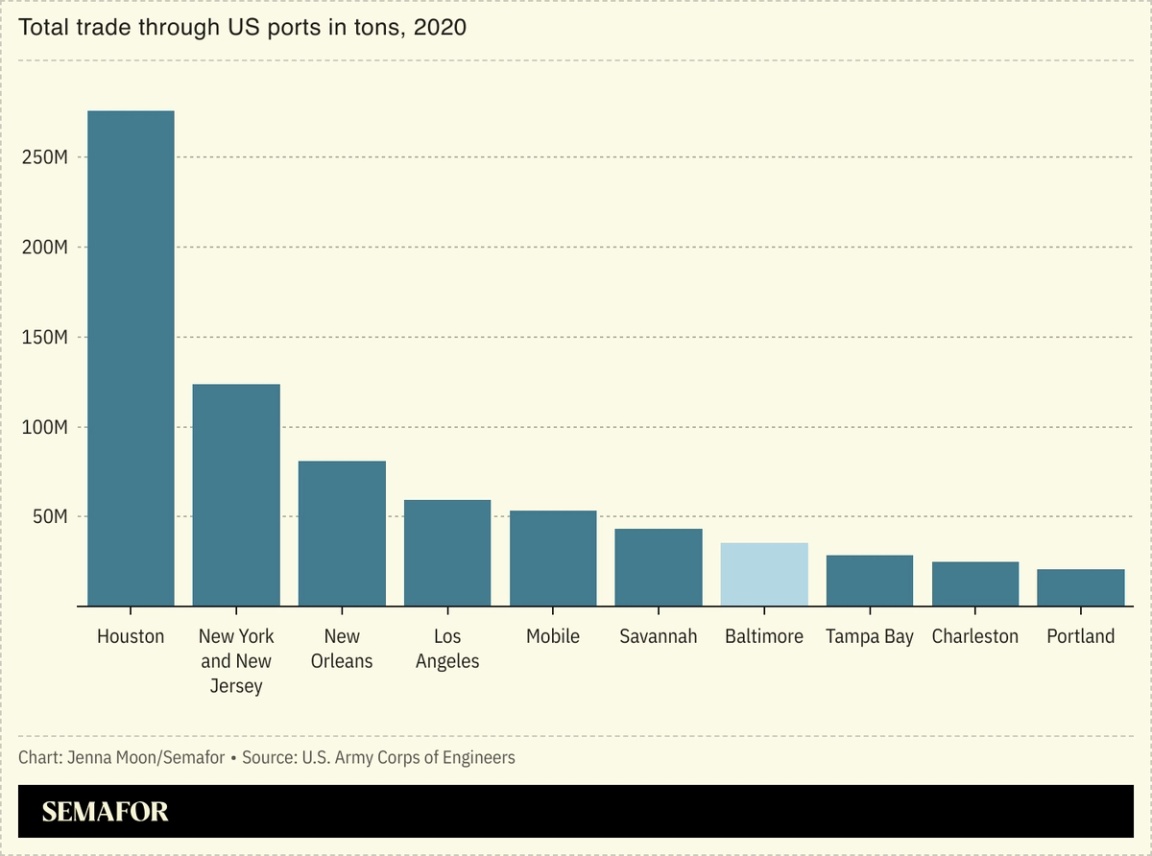 The collapse of a Baltimore bridge closed down a critical U.S. port that imports more cars and light trucks than any other. A container ship struck the bridge early Tuesday, leaving six people unaccounted for and cutting off maritime access to the Port of Baltimore. The disruption could impact the global automotive industry, and will likely have a “domino effect,” Bloomberg trade whiz Brendan Murray said. Car imports will likely be diverted to other East Coast ports, which may have to reroute ships to West Coast ports. Delays or freight cost increases could further hurt companies reeling from Red Sea security concerns and a drought in the Panama Canal. “For the time being, it’s going to be a bit chaotic and costly,” Murray said. |
|
HK art scene at a crossroads |
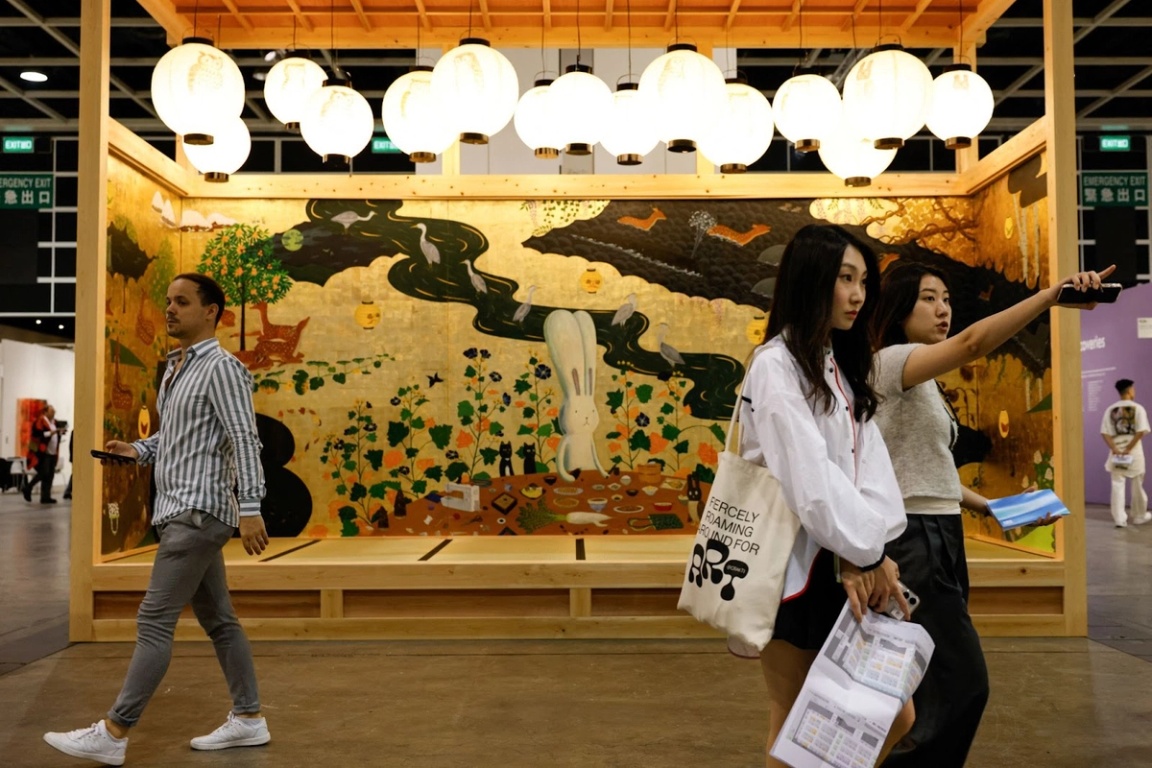 Tyrone Siu/Reuters Tyrone Siu/ReutersAn economic downturn and stringent new national security rules are challenging Hong Kong’s status as an art capital. The real estate crisis in China led to a slowdown in art sales across Hong Kong and the mainland in the second half of 2023. It’s a “make-or-break” time for the city’s art scene, The Art Newspaper wrote, with major players like Sotheby’s opening new salerooms and galleries, and Art Basel returning to pre-pandemic levels. But the passage of a new security law that could stifle expression looms over the city. “There are signs that the old Hong Kong is well and truly over. … Now, you can get arrested for saying the wrong things,” the arts editor of the South China Morning Post said. |
|
China’s comics in ‘hibernation’ |
 Stand-up comedian Yang Mei performs in Beijing in 2021. Greg Baker/AFP via Getty Images Stand-up comedian Yang Mei performs in Beijing in 2021. Greg Baker/AFP via Getty ImagesStandup comedy flourished in China in the late 2010s, but a recent censorship crackdown has forced the community into “hibernation,” The New Yorker wrote. After a comedian’s reference to a Chinese military slogan went viral last year, standup shows were canceled and culture inspectors began monitoring comedians’ sets, a level of oversight already familiar to the country’s musicians, artists, and writers. “In the U.S., everyone wants to go viral. In China, nobody does,” a Beijing arts entrepreneur said. Comedians now vet their sets with local censorship offices, and often rely on observational comedy rather than commentary. “Everyone is Jerry Seinfeld,” one standup comic said. |
|
AI translation hurts language-learning |
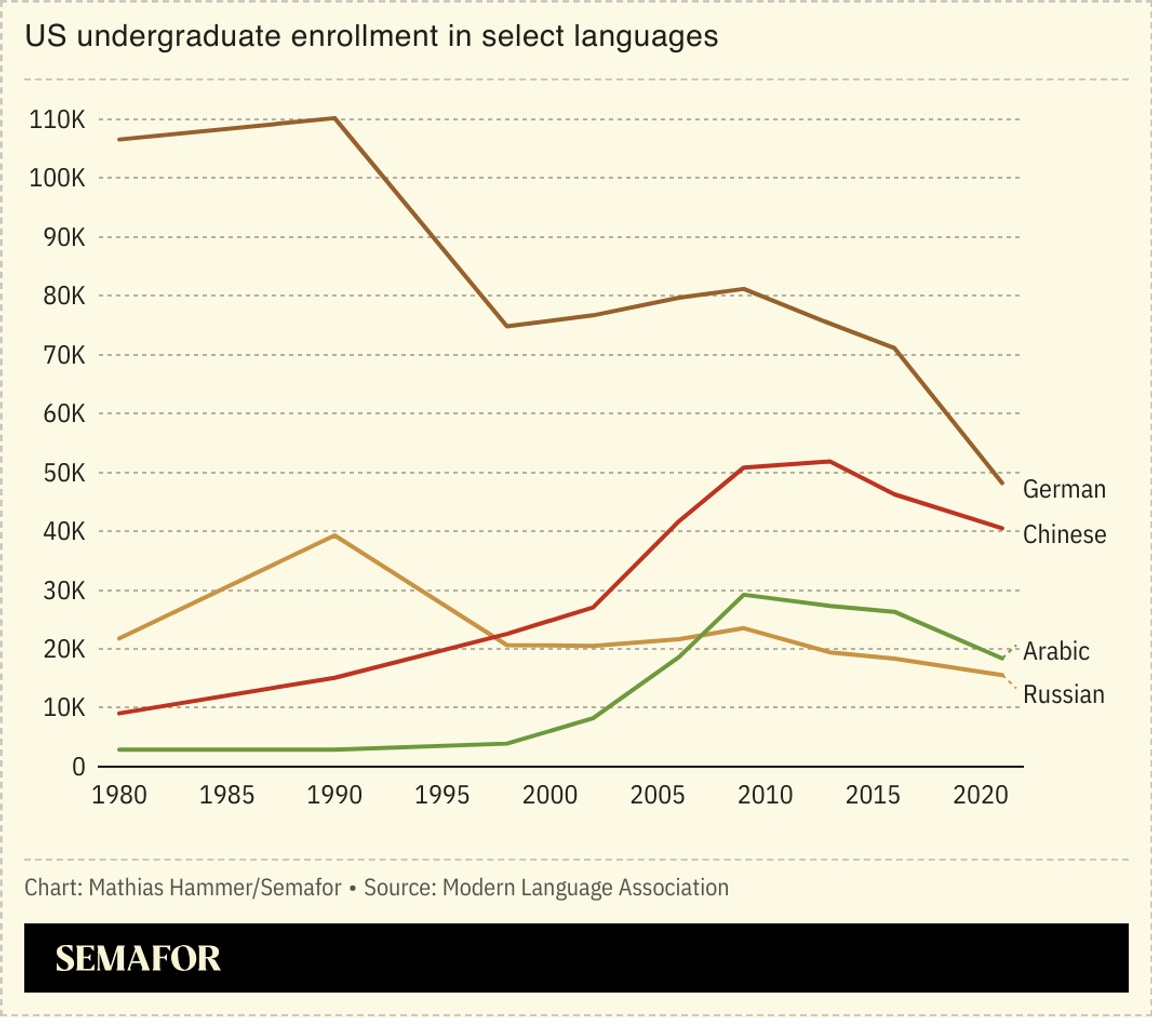 Advanced artificial intelligence tools could eventually make learning a foreign language obsolete, at a cost to meaningful human connection. Apps can now generate deepfake videos of users speaking in dozens of languages, and platforms and streaming sites are rushing to integrate AI translation tech. The number of students learning other languages is simultaneously dropping, tech journalist (and former Semafor reporter) Louise Matsakis noted in The Atlantic. But as real-time translation becomes “commonplace and frictionless,” people will lose out on the joy and discovery of learning different languages: Experts “likened it to discovering a new way to think,” Matsakis wrote. “No machine can replace such a profoundly human experience.” |
|
Ukraine makes Africa push |
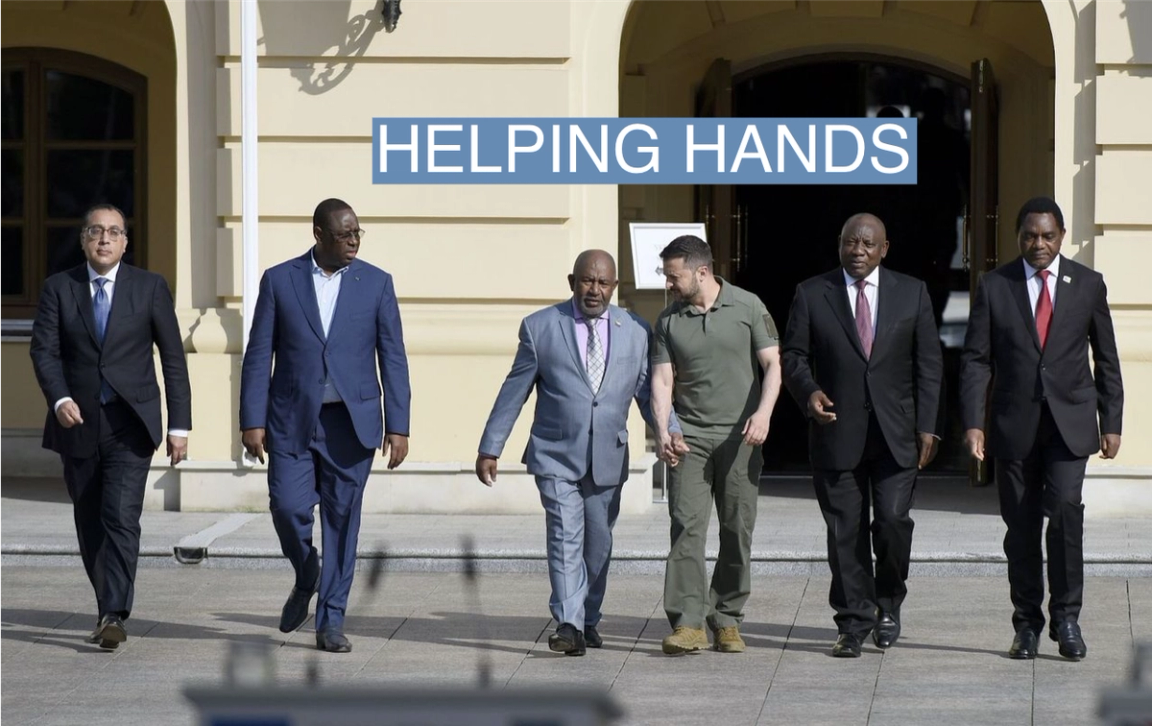 NurPhoto NurPhotoUkraine is strengthening ties with African countries to counter Russia’s growing influence on the continent and reduce reliance on wavering Western nations. President Volodymyr Zelenskyy is set to make his first state visit to Africa in the next few months, as Kyiv expands its grain shipments program and plans to roughly double its 12 embassies, a government spokesperson told Semafor. As Russia woos African leaders by shipping grain and cooperating with military juntas in three West African countries, Ukraine is realizing that “in a war of attrition that could go on for years, it can only help to have allies in Africa, and across the Global South more broadly,” Semafor Africa’s Alexis Akwagyiram wrote. |
|
 Kevin Lamarque/Reuters/File Photo/File Photo Kevin Lamarque/Reuters/File Photo/File PhotoPresident Joe Biden gained steam against Donald Trump in six key swing states, a new poll showed, prompting Axios’ Alex Thompson to wonder if it signals a “Biden comeback.” The president took a lead in Wisconsin, tied with Trump in Michigan and Pennsylvania, and narrowed the Republican lead in three other swing states, according to the Bloomberg News/Morning Consult poll. It’s “the first time in months” that the swing state poll has Biden this close to Trump, Thompson wrote. Nationally, The Economist shows Biden in a dead heat with Trump for the first time since September 2023. The race is shaping up to be a “classic tortoise-versus-hare tale” between a “zig-zagging” Trump campaign and a “methodical” Biden, wrote John T. Bennett, Roll Call’s White House correspondent. |
|
An Indigenous food renaissance |
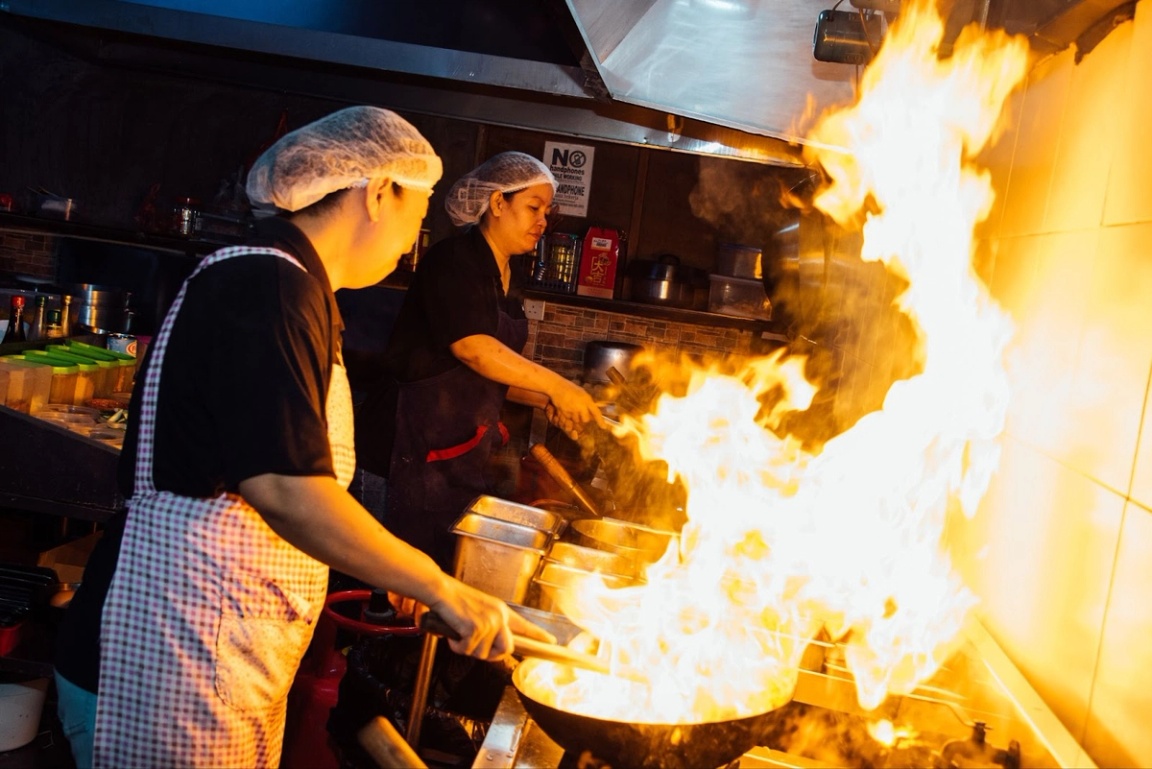 Alvin Lau for The Washington Post via Getty Images Alvin Lau for The Washington Post via Getty ImagesBorneo’s Indigenous cooking is enjoying a revival. The Malaysian state of Sarawak, on the jungle-covered Southeast Asian island, saw many local chefs who had left to work abroad return during the pandemic. Indigenous food knowledge was disappearing “dramatically” in much of Southeast Asia and South America, but traditional cooking has a newfound popularity: The chefs of four restaurants in Lima, Peru that were named among the world’s 50 best last year credited their success to Indigenous Amazonian suppliers, while Sarawak’s state capital Kuching was named one of UNESCO’s “cities of gastronomy” in 2021. Sarawak dishes are in a period of “not just revival but of massive experimentation,” one food writer told The Washington Post. |
|
Drama over birdwatching record |
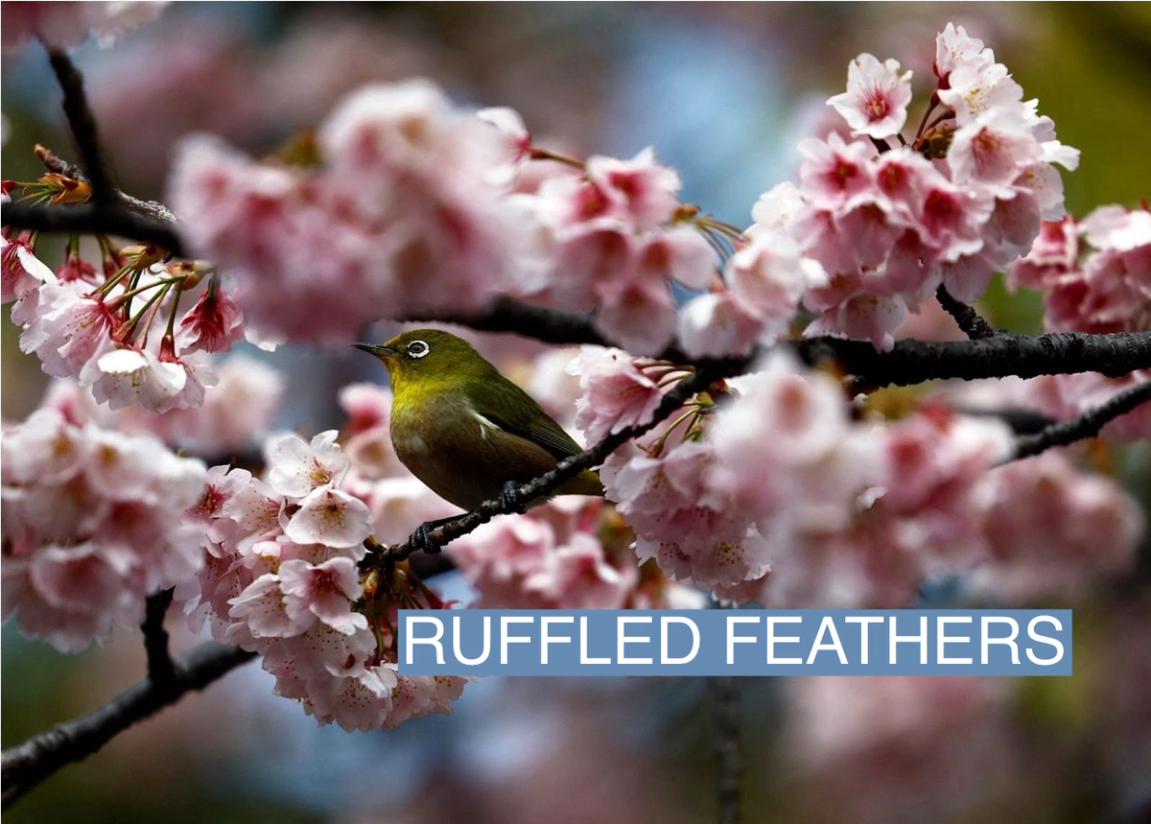 Issei Kato/Reuters Issei Kato/ReutersThe online birding community was set aflutter as two men fought over its biggest record. Hours before a renowned super-birder announced his 10,000th bird sighting last year, a little-known Hong Kong-based birder, Jason Mann, swooped in to claim the record. The ensuing drama — Mann’s list allegedly included “fishy species,” forcing him to eventually concede defeat — illustrated the need to better moderate online birding logs “where sightings are largely accepted in good faith,” The Guardian wrote. However, one birding app head dismissed concerns, saying the competition is still friendly: “Even if two top birders are neck and neck, I guarantee you they would help one another to get a new lifer, or even share a car on a trip to see a rare bird.” |
|
Data centers eye nuclear plants |
The land around nuclear power stations is prime real estate for data centers that need sources of reliable, carbon-free energy. A U.S. artificial intelligence startup has been fighting for more than a year to build two data centers next to a Connecticut nuclear plant, while Amazon Web Services is buying a server complex near a Pennsylvania plant, with an option to purchase up to 960 megawatts of power. Other cloud and AI providers — notably Microsoft — are looking to build small modular reactors of their own, The Register reported, but in the meantime, “there are still more than 400 reactors around the globe to collocate with.” There may be more soon: Both Thailand and the Philippines plan to build plants by the early 2030s. |
|
Move to end rat swim tests |
 Fabrice Coffrini/AFP via Getty Images Fabrice Coffrini/AFP via Getty ImagesPressure is growing on researchers testing antidepressants to stop using the controversial “forced swim test” on rats. Rats are put in water, and the assumption is that depressed animals will give up swimming more quickly. So if a rat on antidepressants swims longer, it suggests the treatment is working. But the Australian and U.K. governments have recently moved to reduce its use, and the U.S. National Institutes of Mental Health has discouraged it. Scientists are concerned it is not a good model for human mental health — psychologists increasingly believe “depression” is not a single disorder — and that the cruelty to the animals is unjustified. One scientist told Science she’d prefer other methods, but the “alternatives are somewhat missing.” |
|
 March 27: - Joe Biden hosts his biggest campaign fundraiser in New York, which is expected to raise more than $10 million.
- Scoop, a Netflix dramatization of Prince Andrew’s disastrous Newsnight interview, premieres in London.
- Italian Prime Minister Giorgia Meloni visits Beirut to meet with her Lebanese counterpart, as tensions continue along Lebanon’s southern border with Israel.
|
|
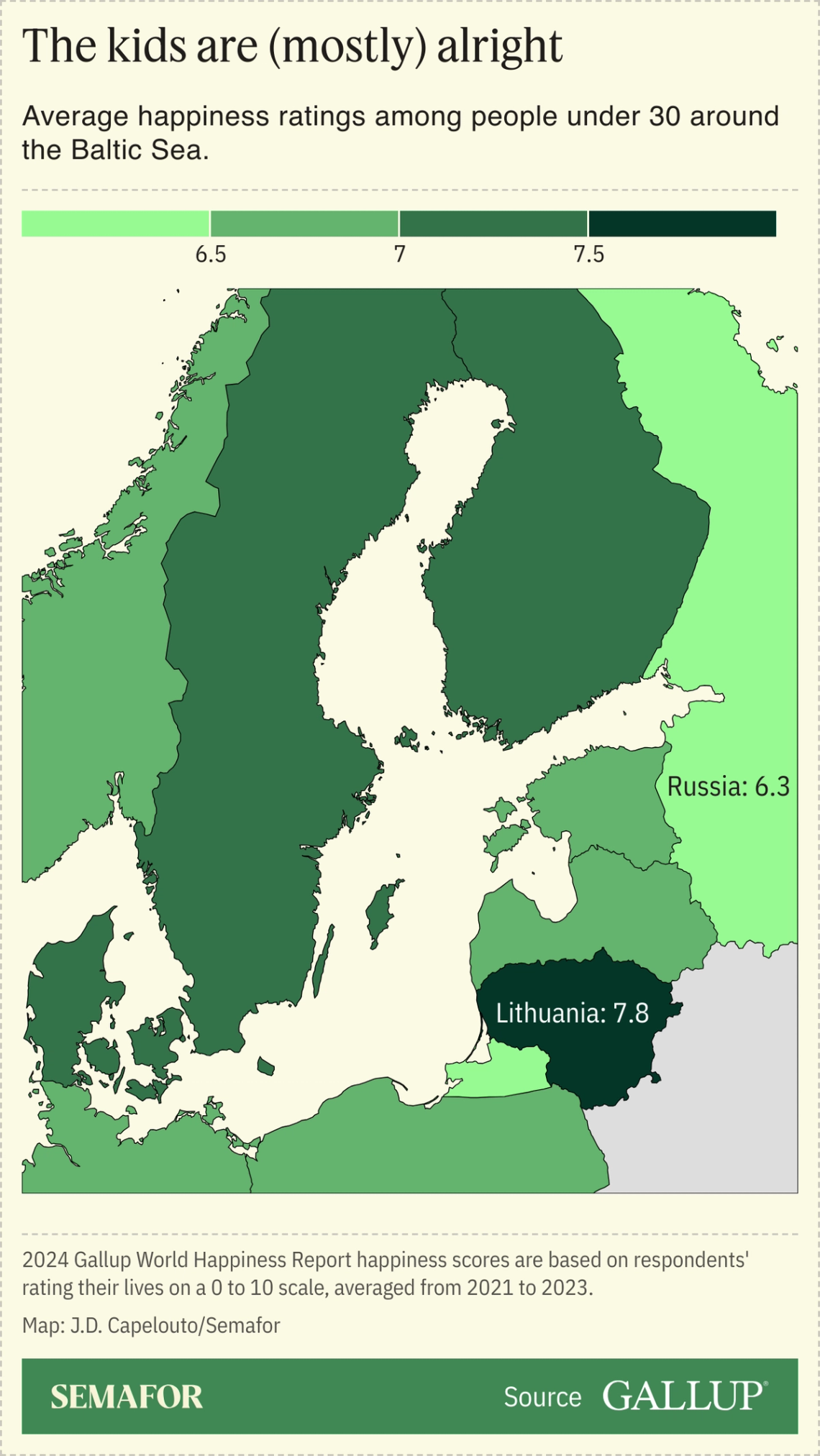 Lithuania has the world’s “happiest” young population, according to the 2024 Gallup World Happiness Report. People under 30 in the Baltic country rated their lives at an average of 7.8 out of 10, more than a point ahead of their peers in nearby Russia. Young people across much of Europe have become increasingly satisfied with their lives in the last 15 years, boosting the overall life evaluation scores for those countries. Afghanistan, meanwhile, was named the unhappiest country, both overall and for people under 30. |
|
 BBC/Black Camel Pictures BBC/Black Camel PicturesA short-form lesbian romantic drama series about two lifeguards in rural Scotland is a piece of “landmark” television, The Guardian’s Scotland correspondent wrote. The first season of Float consisted of six 10-minute episodes to attract younger audiences. The format forced the show’s creators to work overtime to develop characters and storylines in a condensed time period. The story “explores the ambivalence of growing up in rural Scotland,” The Guardian wrote, and refrains from glamorizing big city life. It depicts the main characters as “just humans who happen to be queer, rather than their queerness somehow making them exceptional,” the show’s scriptwriter said. |
|
| |